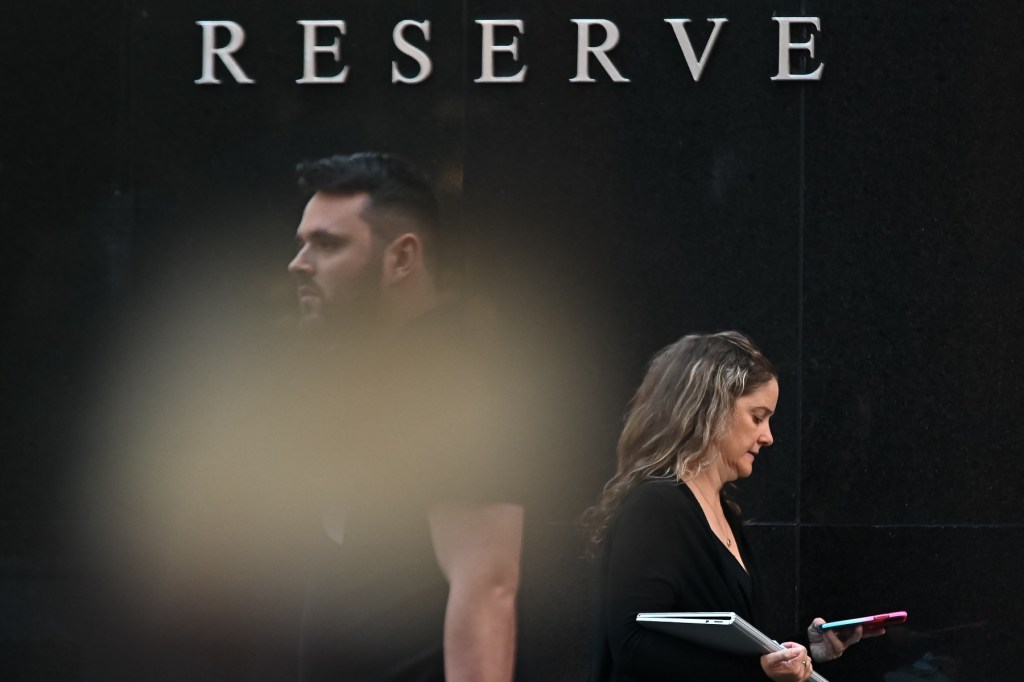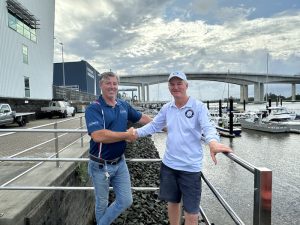Does Tesla have a Musk problem? Data shows its reputation in Australia is tanking as sales fall

- by Admin
- August 21, 2024
On the face of it, Charlie Bell seems like an ideal Tesla customer.
The retired forestry researcher on NSW’s south coast is preparing to buy his first electric vehicle (EV), having already installed rooftop solar and a home battery.
“I’ve always been a bit of a greenie,” he says.
He likes Teslas, Australia’s most popular EV brand, but he’s adamant he’ll never buy one.
The reason is simple: Elon Musk.
The very rich, extremely online CEO of Tesla has alienated Mr Bell with, among other things, his “inane” public comments and endorsement of Donald Trump’s run for the US presidency.
And, according to new data, many other Australians feel the same.
YouGov, a market research company, has observed a sharp fall in the public’s assessment of the Tesla brand since Mr Musk bought Twitter (now X) in November 2022.
Data provided exclusively to the ABC shows Tesla’s “brand health” in Australia has steadily worsened for the past 15 months and is now negative, meaning the public has generally bad associations with the brand.
The average figure for the broader car industry has remained pretty stable over the same period.
Meanwhile, Tesla’s Australian sales are well down, while the broader EV market is booming.
So, does the world’s most famous EV brand have a CEO problem?
‘We wish he’d shut up or put the keyboard down’
It’s been a steep fall from grace for Tesla. Just two years ago, it was one of the few suppliers of EVs to Australia and held up as a clean energy pioneer, a model for a greener, car-driving future.
Mr Musk was its erratic mastermind, known for stunts like launching a Tesla Roadster into space in 2018, or wading into South Australia’s energy debate with a Big Battery solution.
A turning point came in late 2022 when the multi-billionaire bought X and overhauled its moderation policies, allowing climate misinformation, conspiracy theories and far-right hate speech to proliferate.
Over time, he became increasingly outspoken about his right-wing political views.
In recent months, the self-described “free speech absolutist” has been accused of using X as a megaphone to amplify anti-immigration sentiment, including fuelling unrest during the UK’s recent riots.
Last week he hosted Donald Trump on X in a much-hyped interview where both men said there was no urgent need to cut carbon emissions, and Mr Trump called for more fossil fuel production.
It’s bizarre to see the CEO of the world’s second-largest EV company supporting a known climate denier, Chris Jones, president of the Australia EV Association, says.
“Isn’t this guy all about doing something for the climate?”
Some Tesla owners now fear having their car’s paintwork vandalised by Tesla haters, Mr Jones says. Some buy bumper stickers reading “I bought before Elon went crazy”.
“There are a lot of people who are saying, ‘I want an EV, but I don’t want to buy a Tesla because of Elon Musk,'” he says.
“We’re also seeing early Tesla owners who are normally the biggest Musk fanboys you’d encounter who are saying, ‘We wish he’d shut up or put the keyboard down.'”
Elon Musk is the richest person in the world with an estimated net worth of US$241 billion. (Reuters: Ludovic Marin )
To gauge popular sentiment, the ABC asked the 30,000 members of the Facebook group Electric Vehicles for Australia how they thought Mr Musk was affecting Tesla’s popularity. A fierce debate ensued, with hundreds of comments.
Some members said a car purchase should not be a political statement. Others said it should be, and they liked Mr Musk. A third bloc said Tesla should not be defined by its CEO, who owns about 13 per cent of its shares. A fourth said Mr Musk was a marketing genius who would convince climate denialists to buy EVs. A fifth said the question was biased.
An apparent majority said they’d never buy a Tesla because of Mr Musk.
The most-liked comment was Charlie Bell’s:
“I’m in the market for an EV in the next few months. Musk has convinced me I don’t want a Tesla, even though they seem to be a good car.”
In response to enquiries from the ABC, the Tesla Owners Australia group ran a poll asking, “Does Elon Musk change your purchase decision on future Tesla products?” A clear majority of 1,700 voters answered “no”.
The most-liked comment reads:
“I want to buy one even more because of him.”
But not all Tesla owners feel this way. Brett Mason, one of the yes-voters, is selling his Tesla and buying another brand of EV.
“When [Elon Musk] came out and supported Trump that was the final straw,” he says.
Brett Mason says his Tesla is a “fantastic car” but he plans to buy another non-Tesla EV.
(Supplied: Brett Mason)
The self-funded retiree from the Bunya Mountains in Queensland bought the Model 3 Performance in January 2023 for close to $80,000.
“You just worry people think you support his ideology and his values which is way, way, way from the truth.”
Peter Thorne, president of the Tesla Owners Club of Australia, which has about 2,000 members and arranges regular meet-ups around the country to encourage EV ownership, says some Tesla owners were re-thinking their purchases.
“We run quite a few forums with different members commenting on this sort of stuff,” he says.
“People are starting to raise some questions about whether they want to continue to be spending money and be aligned with the brand.”
US Democrats turn away from Tesla as California sales plummet
A CEO’s politics typically has little effect on brand perception, but industry observers say Tesla is in a rare predicament, run by a vocal figurehead who’s made himself synonymous with the brand while also alienating potential buyers.
Loading…
The quintessential Australian Tesla buyer is a highly educated, well-off middle-aged man who votes Labor. They tend to be idealistic and socially responsible.
In the US, EV buyers skew Democrat. As the presidential election campaign continues, Democrats are becoming significantly less likely to make that EV purchase a Tesla.
Data from the Pennsylvania analytics firm CivicScience shows, perhaps unsurprisingly, Democrats are feeling increasingly unfavourable towards Mr Musk.
The sentiment has notably worsened since Mr Musk endorsed Mr Trump in mid-July and pledged to give $US45 million a month to elect Republicans.
Significantly, Democrats’ growing dislike of Mr Musk appears to be tarnishing the Tesla brand.
Danielle Commisso, content marketing manager for CivicScience, says, “Democrats are growing more unfavourable to both Musk and Tesla.”
“While Republicans are significantly more favourable to Musk and perhaps slowly warming to Tesla,” she says.
“Independents are much more likely in August to dislike both Musk and Tesla.”
In the US, one of Tesla’s biggest markets, sales were down 6.3 per cent last quarter, despite other brands recording record EV sales. In the Democrat stronghold of California, which is the largest economy in the US, sales plummeted 24 per cent.
Tesla’s share of total EV sales in the US dipped below 50 per cent for the first time ever.
Despite slowing sales and accusations that he’s spread himself too thin across multiple companies, Mr Musk has the support of Tesla’s board and shareholders.
In a vote billed as a referendum on the CEO’s leadership at the recent Tesla annual general meeting, shareholders approved the largest-ever executive pay package at a US-listed firm, totalling $US45 billion.
Have the early adopters all bought their Teslas?
Tesla sales in Australia dropped 12.9 per cent this year, while the overall EV market was up around 15 per cent.
The company’s share of total EV sales fell below 50 per cent.
Stephen Lester, CEO of the Australian branch of the global market insights company Cox Automotive, says the scale of Tesla’s sales fall is “significant”.
“It’s definitely cause for interest,” he says.
“Interest in EVs is growing and not declining and therefore one would be interested in why Tesla is being affected.”
Without commenting specifically on Tesla, Mr Lester says “reputation is an important factor” affecting sales.
But he says the main reason for Tesla’s fall in sales is more tangible than consumer perception, or what people think of the CEO. It’s competition.
For years Tesla was one of the few EV brands available to Australians, and enjoyed a clear technological advantage.
It’s now competing with dozens of EV-selling brands, many of them with more recently launched models. The field has caught up.
“We have far more choice in [the] market with about 70 EV models being sold by roughly 30 brands, whereas a few years ago there was only a couple of brands,” Mr Lester says.
Tesla’s sales fall may also be a symptom of demographic changes in the EV market.
The early adopter market is saturated; the well-off, middle-aged men have bought their Teslas.
Cox’s own research shows the new EV-buying demographic has a lower average household income, is more multicultural, and more likely to be either older or younger.
And unlike the longstanding members of Tesla-owner Facebook groups, these new buyers have no reason to feel particularly loyal to the market pioneer or its CEO.
They’re considering other EV models, which can cost up to $20,000 less than the lowest-priced Tesla.
“Tesla has done very well with early adopters and first movers,” Mr Lester says.
“They’ll need to look at more broadly what value looks like for the rest of the consumer segment to maintain relevance.”
Judy, a retired retail business owner on Victoria’s Surf Coast, is typical of this new EV-buying demographic. She and her husband are looking to sell their diesel vehicle.
She says Tesla makes good EVs, perhaps the best, but there are now plenty of other good options as well.
Given this product range, her dislike of Mr Musk is a decisive factor in her purchase decision.
“There’s no way we could consider supporting his brand.”
Tesla was contacted for comment.
The Latest News
-
December 25, 2024Australia to bat first at MCG in Boxing Day heat
-
December 25, 2024Golf Participation in Australia Hits New Heights – APGC
-
December 25, 2024Boxing Day Test: Australia batting first against India
-
December 25, 2024Boxing Day Test 2024: Australia vs India fourth men’s cricket Test, day one – live updates
-
December 25, 2024Head’s workload not a concern despite niggling injury



